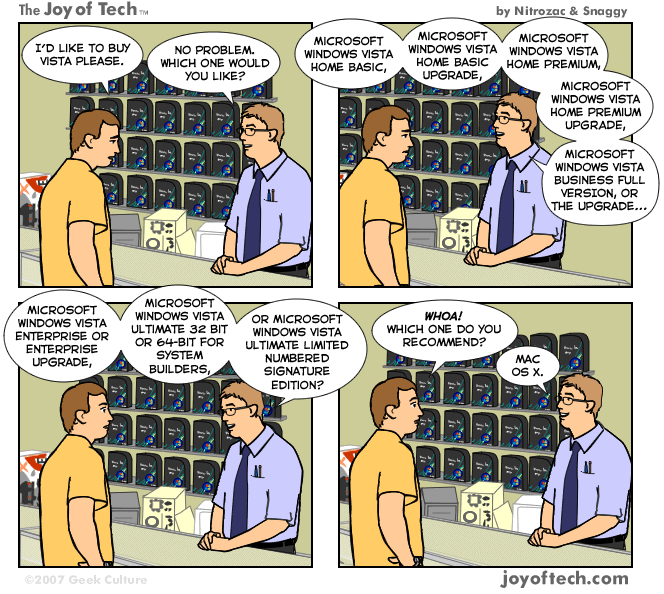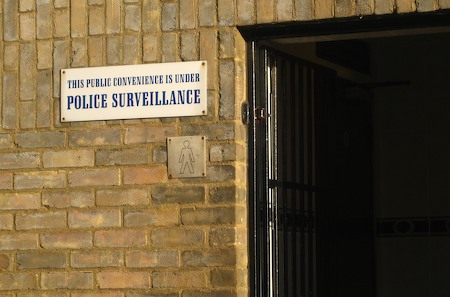One of Apple’s biggest achievements in the creation of the iTunes/iPod system was the balance that it managed to strike between the needs of customers and the needs of the recording industry. Their DRM (Digitial Rights Management) system allows you to make enough copies of your music on enough devices that it will seldom be an encumbrance to anybody, while not being a free-for-all that the music industry couldn’t accept. All DRM systems make me slightly uneasy, but it’s hard, I think, to find another company that has incorporated one as well as Apple.
Nonetheless, they’ve come in for some criticism recently because they don’t license their DRM to anybody else. Steve Jobs has just posted his response on the Apple site. As he says…
Today’s most popular iPod holds 1000 songs, and research tells us that the average iPod is nearly full. This means that only 22 out of 1000 songs, or under 3% of the music on the average iPod, is purchased from the iTunes store and protected with a DRM. The remaining 97% of the music is unprotected and playable on any player that can play the open formats. It’s hard to believe that just 3% of the music on the average iPod is enough to lock users into buying only iPods in the future.
But nonetheless, Apple would very much like a DRM-free world. Cynics may say that it’s easy to say that you’d support something when it’s so unlikely to come about, and that the real message of the piece is “Don’t bring antitrust measures against us – it’s not our fault”. But that doesn’t make the arguments invalid. Worth reading.

 This was brought home to me last weekend while helping a friend choose a new TV. In the local shop, I noticed a variety of HDMI cables for sale. Now HDMI, for those of you not familiar with it, is quite a nice standard. It provides digital video and digital audio down a single compact and convenient connection. Much neater than the bulky DVI, VGA, SCART etc which preceded it.
This was brought home to me last weekend while helping a friend choose a new TV. In the local shop, I noticed a variety of HDMI cables for sale. Now HDMI, for those of you not familiar with it, is quite a nice standard. It provides digital video and digital audio down a single compact and convenient connection. Much neater than the bulky DVI, VGA, SCART etc which preceded it.

Recent Comments